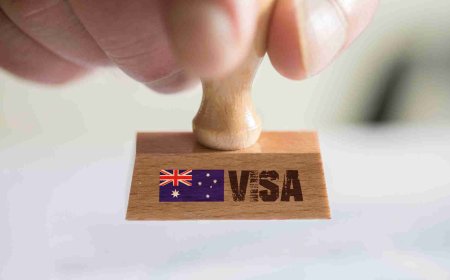Why Australia is Rejecting Temporary Visas ??
Do you know that Australian Universities are rejecting applications from people already in Australia on tourist and post-study work visas in a new phase of the foreign student clampdown? The government aims to reduce the exploitation of the student visa system for work purposes, prompting concerns within the education sector.
As the Australian government intensifies its crackdown on migration, universities are taking preemptive measures by rejecting applications from individuals already in the country on tourist, temporary work, or bridging visas. This move comes ahead of anticipated changes proposed by the Labor Party, prompting concerns within the education sector.
Peak bodies within the sector are set to convene this week to discuss the possibility of urging the government to halt alterations to risk ratings, which determine the priority of visa processing for educational institutions. This pause aims to prevent institutions from experiencing a decline in their rankings, particularly after a tumultuous period marked by significant reductions in visa approvals earlier this year.
According to Phil Honeywood, head of the International Education Association of Australia, universities are increasingly compelled to turn away onshore applicants to safeguard their risk ratings amid the government's efforts to curtail the influx of temporary residents using student visas as a pathway to employment rather than education.
The government's migration strategy, under the Albanese administration, seeks to minimize the exploitation of the student visa system for employment purposes, with a target of reducing new arrivals by approximately 250,000. This involves targeting higher-risk universities and colleges suspected of admitting students primarily for work opportunities rather than genuine educational pursuits.
Ravi Singh, director of the Global Reach education agency, highlights instances where temporary visa holders exploit loopholes by enrolling in lower-quality institutions solely to extend their stay in Australia, gaining work rights through student visas despite lacking genuine academic intentions.
While specific changes have not been implemented yet, the government's strategy hints at restrictions on temporary graduate visa holders transitioning back to student visas while in Australia, as well as curbing visa hopping within the country.
Some universities, such as Flinders University, have already begun refusing applications from tourist visa holders and are evaluating other temporary entrants on a case-by-case basis. Charles Sturt University and the University of Wollongong have adjusted their admission processes in response to government policy shifts and heightened scrutiny on visa applications.
Home Affairs Minister Clare O’Neil defends the government's actions, emphasizing the need to address unsustainable migration rates and tackle fraudulent practices within the education sector. However, tensions persist between the government and universities, with concerns raised over the accuracy of data and the impact of policy changes on top-tier institutions.
Luke Sheehy, chief executive of Universities Australia, continues to engage with the government to address sector concerns, including potential pauses in risk rating adjustments. The outcome of discussions among peak education bodies this week may determine whether a consensus can be reached on freezing risk ratings, providing institutions with more time to adapt to evolving migration policies.
What's Your Reaction?
 Like
0
Like
0
 Dislike
0
Dislike
0
 Love
0
Love
0
 Funny
0
Funny
0
 Angry
0
Angry
0
 Sad
0
Sad
0
 Wow
0
Wow
0







































































































